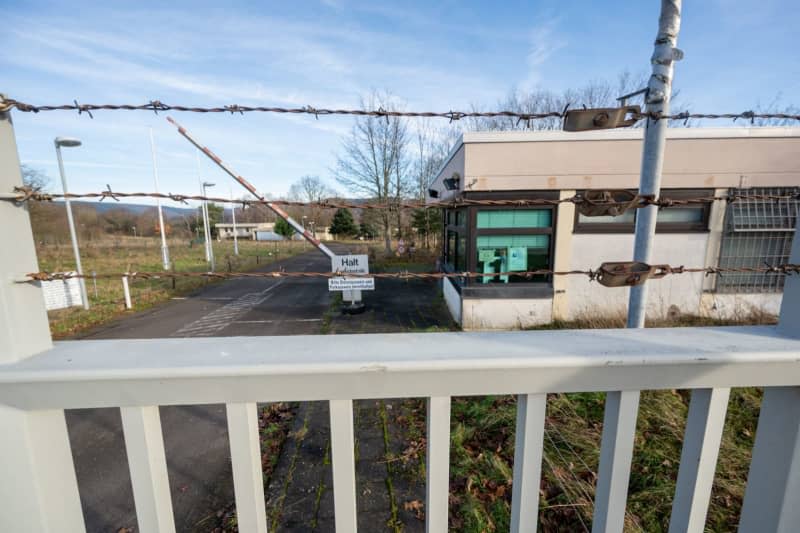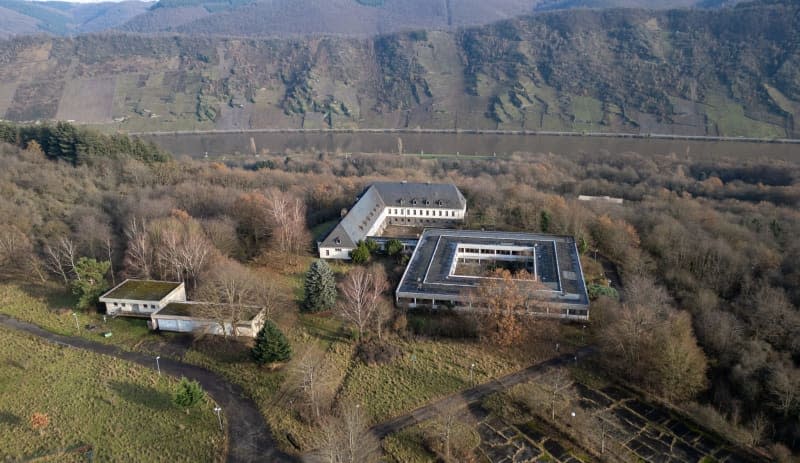Infamous German darknet bunker gets new life as cheese or wine cellar

Few bunkers in Germany are as famous as the one on the banks of the Moselle river that was long the centre of an international crime ring.
Known as the cyber bunker, the site in Traben-Trarbach made headlines nationwide when it was revealed to be the dark heart of a cyber crime ring, a data processing centre hosting multi-million dollar deals on the darknet.
That came to an end when the masterminds behind the crime ring were convicted in one of Germany's largest cybercrime trials to date, a story that still draws viewers to a Netflix documentary.
The bunker itself, meanwhile, looks like many others, with little changed since the dramatic raid.
The mayor of picturesque Traben-Trarbach, Patrice Langer, says he has already received some enquiries from people looking to rent the site. "Some of them are very curious."
There's a Dutchman hoping to ripen cheese in the bunker, while another candidate can see it as a wine depot.
Less foody proposals include using the site as a back-up for a bank in Frankfurt, an open-plan club and a bunker hotel, he says. It is not up to Langer to decide, however, as the 13-hectare site is now the property of the state of Rhineland-Palatinate.
Back in its criminal heyday, the 5,500 square metre bunker housed hundreds of servers that were used to carry out almost 250,000 criminal offences spanning drug deals, data theft, computer attacks and counterfeit money transactions.
The operators advertised themselves as a "bulletproof hoster" safe from the police and governments. The gang of seven men and one woman were convicted of membership of a criminal organization by the Trier Regional Court in 2021, and were handed sentences ranging from one year on probation to five years and nine months.
Rhineland-Palatinate has owned the property since last September, its landlord is the state tax office.
The public prosecutor's office confiscated the bunker in October 2019 and it was passed to the state, says senior public prosecutor Jörg Angerer, who heads the State Cybercrime Centre in Rhineland-Palatinate at the Koblenz Public Prosecutor General's Office.
The bunker's future is not set in stone. "It has not yet been possible to determine a specific subsequent use," says Wiebke Girolstein, spokeswoman for the state office.
The office has offered the facility to the public sector with discussions underway with Germany's Federal Agency for Real Estate. That does nto rule out a sale to a private owner, however. "The future buyer will then decide on the specific use."
Officials are currently creating a detailed overview of the entire property, including the bunker and two above-ground buildings. These two buildings are in need of renovation and cannot be used in their current state.
No final assessment of the bunker has yet been made, no sale price set. In the short term, its future involves maintenance measures to prevent groundwater from entering or to keep unwelcome guests out.
The underground shelter, located on the Mont Royal ridge above Traben-Trarbach, used to house the German Armed Forces' Geoinformation Office. "This was the unit that advised the Bundeswehr on all scientific matters," says Langer, who used to work there himself.
Processed data was then sent from there to the units, including abroad, until the closure of the office in 2012. At the end of 2013, the ringleader of the cyber bunker gang bought the old Bundeswehr bunker for €450,000 ($489,000).
The Dutchman gradually built up the cyber bunker and it took 650 police officers from Germany backed by special units for the raid that brought the enterprise tumbling down. Special forces found 886 physical and virtual computers.
They also tracked down darknet operators worldwide, with some 150 arrest warrants executed abroad later on, according to Chief Public Prosecutor Angerer.
The mayor now wants a government authority to move in. That would be good news for the town of nearly 6,000 inhabitants, he says, recalling that back in the day, the Bundeswehr had 345 posts there - leading to more income tax revenue among other municipal benefits.
"Since the office left, I've been missing a good half a million euros a year in the town's coffers," says Langer.
Meanwhile, his thoughts have also turned to crime - and countering dark forces. "For years, the work up there has been highly criminal. What would it be like if the federal or state government set up an authority there to fight cybercrime? That would have a great impact."


